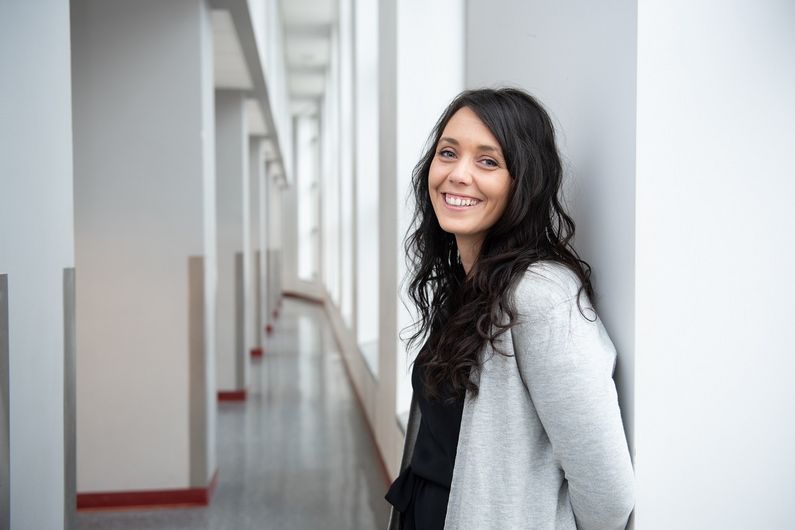Karine Gagné: Blending theory with practice
- UdeMNouvelles
03/03/2023
- Stéphanie Deschamps
As a practicing psychoeducator with a PhD, Karine Gagné doesn’t want to simply pass on knowledge to her students. She also wants to give them the mindset and skills needed to practice the profession.
Karine Gagné is passionate about her work. Within just a few minutes of meeting her, you can see that she cares deeply about counselling and very much wants to make a difference. Recently hired as an assistant professor in the School of Psychoeducation of Université de Montréal, Gagné doesn’t limit herself to teaching theory. She also educates students about the realities of clinical practice that she knows so well.
Gagné has a doctorate in psychoeducation, but she feels having the right skills and mindset is just as important as understanding theory. In 2014, even though she had already worked at a youth centre while finishing a bachelor's degree in psychology and a master's degree in psychoeducation, she took a break from school to gain even more clinical experience as a psychoeducator.
“I was already thinking about doing a doctorate at the time,” she recalled. “But I wanted to work. It didn’t make sense for me to go on with my graduate studies without experiencing what I was talking about.” In 2015, she got her first experience teaching in a university by getting a job as a lecturer in psychoeducation at Université de Sherbrooke, in addition to working as a psychoeducator with youth teams in the health and social services network.
In 2020, a year before finishing her doctorate, she opened her own private practice. Although it’s been interrupted by her move to Montreal, she feels that her private practice perfectly combined the other aspects of her career, namely research and teaching.
“The three fields feed into each other,” she noted. “To stay on top of the latest developments, you have to see what’s going on in practice. I also feel it's important to test our theories and make sure that what we're teaching works in real life. Then, if that’s not the case, I need to take a step back to ask myself how our research should be improved and how these concepts can be developed differently.”
For Gagné, questioning the practices and theories she teaches is a must. As someone who’s a pioneer in the emerging scientific field of non-verbal parental mentalization in Canada, she believes it’s important to adapt to today's new realities and approach psychoeducation with an open mind and a contemplative approach.
“The theories and knowledge that we present still reflect and are limited by what we know. What I teach today could change tomorrow,” said Gagné, who won the Fonds de recherche du Québec – Société et culture’s 2022 Relève étoile Paul-Gérin-Lajoie, which recognizes outstanding work performed by young researchers.
But Gagné doesn't believe in change for change's sake. She thinks there should be a rationale for change: the desire to move things forward must be accompanied by an understanding of the reasons why such change is necessary.
“My actions are dictated by my desire to help people, but also to improve the status quo,” she said. “If some of our practices no longer work, I try to understand the reasons why. I like to analyze why we do things the way we do, understand how they work and find out what's led us to a certain point. Then I try to see which new practices we might implement that could remain useful over time.”
Gagné is a strong proponent of the competency-based approach and tries to instill this way of thinking in her students. “Everything depends on the ability to listen and think things through," she said. It's essential for students to be able to reflect, be sensitive to others and see things from both their own other people's perspectives, but these are abilities that are sometimes hard to pass on in an academic environment.
"It’s easier to share and evaluate knowledge than to examine mindsets, but I want my teaching to reflect what it's like to be a practicing psychoeducator. It’s enormously important for me because I believe ultimately that's what will make a difference and really set UdeM students apart from everyone else.”













